40 typical compound light microscope labeled
A Study of the Microscope and its Functions With a Labeled Diagram ... The compound microscope uses light for illumination. Some compound microscopes make use of natural light, whereas others have an illuminator attached to the base. The specimen is placed on the stage and observed through different lenses of the microscope, which have varying magnification powers. Compound Microscope Parts and Functions Compound Light Microscope Diagram Worksheet - Google Groups Today most microscopes are called compound light microscopes and drug two lenses for greater magnification The door lens is called the ocular lens or. It is easiest to scan a slide at frequent low...
Solved Label the image of a compound light microscope using - Chegg Expert Answer. 100% (17 ratings) Transcribed image text: Label the image of a compound light microscope using the terms provided.

Typical compound light microscope labeled
Compound Microscope Parts The three basic, structural components of a compound microscope are the head, base and arm. Head/Body houses the optical parts in the upper part of the microscope. Base of the microscope supports the microscope and houses the illuminator. Arm connects to the base and supports the microscope head. It is also used to carry the microscope. Compound Microscope: Definition, Diagram, Parts, Uses, Working ... - BYJUS The parts of a compound microscope can be classified into two: Non-optical parts Optical parts Non-optical parts Base The base is also known as the foot which is either U or horseshoe-shaped. It is a metallic structure that supports the entire microscope. Pillar The connection between the base and the arm are possible through the pillar. Arm Parts of a Compound Microscope (And their Functions) - Scope Detective A compound microscope is the most common microscope you can get and the type you'll typically see in a lab or hobbyist's study. These microscopes tend to have. ... For a compound light microscope, there are usually two sets of ocular lenses in a purchase: 10X and 20X. However, this isn't always the case, particularly with Barlow lenses ...
Typical compound light microscope labeled. Parts of a microscope with functions and labeled diagram - Microbe Notes Microscopic illuminator - This is the microscopes light source, located at the base. It is used instead of a mirror. It captures light from an external source of a low voltage of about 100v. Condenser - These are lenses that are used to collect and focus light from the illuminator into the specimen. Microscope, Microscope Parts, Labeled Diagram, and Functions For a typical compound microscope with a 10X ocular lens and objective lenses with magnifications of 4X, 10X, 40X, and 100X, your microscope will have magnifications of 40X, 100X, 400X, and 1000X depending on which objective lens you use. ... Light Microscope: Electron Microscope: Size: Small: Very large: ... and label them clearly. Place the ... Compound Light Microscope Optics, Magnification and Uses AmScope 40X-2000X Biological Compound Microscope with Mechanical Stage AmScope 40x-1000x Advanced Student Widefield Biological Compound Microscope AmScope 40X-1000X LED Cordless Student Compound Microscope AmScope 40X-2500X LED Digital Binocular Compound Microscope with 3D Stage and 5MP USB Camera compound microscope parts (labeling) Flashcards | Quizlet iris diaphragm - controls the amount of light in the picture (the contrast) what is 7? illumination system - light source of the microscope what is 8? eyepiece (ocular lens) - magnifying piece that is looked into in order to see the specimen what is 9? arm (frame) - connects the base to the eyepiece lens and helps to carry the microscope easily
Solved 2. Label the following parts of the compound light - Chegg Label the following parts of the compound light microscope. b. c. d. b e. f. d B. h. i. j. k. 1. This problem has been solved! See the answer Show transcribed image text Expert Answer 100% (2 ratings) A. Eyepiece B. Nose piece C. Objective l … View the full answer Transcribed image text: 2. Parts of the Compound Microscope - Houston Community College Parts of the Compound Microscope Use Figure 2 as a guide to locate the major parts of the compound microscope. a. Base: The bottom, flat part that supports the microscope. b. Arm: The straight or curved vertical part that connects the base to the upper portion. c. Body Tube: Extends from the arm and contains the ocular lens and the rotating Light microscopes - Cell structure - Edexcel - BBC Bitesize The components of a light microscope and their functions Calculating the magnification of light microscopes. The compound microscope uses two lenses to magnify the specimen: the eyepiece and an ... Compound Microscope: Parts of Compound Microscope - BYJUS (A) Mechanical Parts of a Compound Microscope 1. Foot or base It is a U-shaped structure and supports the entire weight of the compound microscope. 2. Pillar It is a vertical projection. This stands by resting on the base and supports the stage. 3. Arm The entire microscope is handled by a strong and curved structure known as the arm. 4. Stage
Compound Microscope - Types, Parts, Diagram, Functions and Uses It comes with a wide body and base. Its distinct parts include a condenser, illumination, focus lock, mechanical stage, and a revolving nosepiece which can hold up to five objectives. It usually has a binocular head, which makes long-term observation easy. Image 22: An example of a research compound microscope. Compound Microscope Parts - Labeled Diagram and their Functions The term "compound" refers to the microscope having more than one lens. Basically, compound microscopes generate magnified images through an aligned pair of the objective lens and the ocular lens. In contrast, "simple microscopes" have only one convex lens and function more like glass magnifiers. Compound Microscope- Definition, Labeled Diagram, Principle, Parts, Uses The common light microscope is also called a bright-field microscope because the image is produced amidst a brightly illuminated field. The image appears darker because the specimen or object is denser and somewhat opaque than the surroundings. Part of the light passing through or object is absorbed. Magnification of compound microscope Bright-field microscope (Compound light microscope) - Diagram (Parts ... A bright-field microscope, also known as a compound light microscope is among the simplest of optical microscopes. Optical microscopes employ visible light and a series of lenses to magnify the specimen and view it in detail.
Why Is The Light Microscope Called A Compound Microscope? A typical compound microscope will allow you a magnification that will go from 40x to 1000x, from which you can easily observe the bacteria. This higher magnification is produced when the compound microscope uses to lens to magnify instead of using just one. There is more than one type of compound microscope.
What is a Compound Microscope? - New York Microscope Company A compound microscope is an instrument that is used to view magnified images of small objects on a glass slide. ... The Characteristics of a Compound Microscope. Two or more convex lenses; Typical magnification range between 40x and 1000x ... If you hear either of the terms "brightfield microscope" or "transmitted light microscope," it is ...
Compound Light Microscope: Everything You Need to Know A compound light microscope is a type of light microscope that uses a compound lens system, meaning, it operates through two sets of lenses to magnify the image of a specimen. It's an upright microscope that produces a two-dimensional image and has a higher magnification than a stereoscopic microscope.
Compound Microscope Parts, Functions, and Labeled Diagram Common compound microscope parts include: Eyepiece (ocular lens) with or without Pointer: The part that is looked through at the top of the compound microscope. Eyepieces typically have a magnification between 5x & 30x. Monocular or Binocular Head: Structural support that holds & connects the eyepieces to the objective lenses.
16 Parts of a Compound Microscope: Diagrams and Video In compound microscopes with two eye pieces there are prisms contained in the body that will also split the beam of light to enable you to view the image through both eye pieces. 2. Arm The arm of the microscope is another structural piece. The arm connects the base of the microscope to the head/body of the microscope.
Compound Microscope - Diagram (Parts labelled), Principle and Uses Also called as binocular microscope or compound light microscope, it is a remarkable magnification tool that employs a combination of lenses to magnify the image of a sample that is not visible to the naked eye. Compound microscopes find most use in cases where the magnification required is of the higher order (40 - 1000x).
An Introduction to the Light Microscope, Light Microscopy Techniques ... Simple and compound microscopes Types of light microscopy - Bright field microscopy - Dark field microscopy - Phase contrast microscopy - Differential interference contrast microscopy - Polarized light microscopy - Fluorescence microscopy - Immunofluorescence microscopy - Confocal microscopy - Two-photon microscopy - Light sheet microscopy
Labelled Diagram of Compound Microscope The below mentioned article provides a labelled diagram of compound microscope. Part # 1. The Stand: The stand is made up of a heavy foot which carries a curved inclinable limb or arm bearing the body tube. The foot is generally horse shoe-shaped structure (Fig. 2) which rests on table top or any other surface on which the microscope in kept.
Light Microscope: Functions, Parts and How to Use It Compound light microscope: has a higher magnification than a simple microscope because it uses at least two sets of lenses, an objective lens and an eyepiece. Light Microscope Function The function of the light microscope is based on its ability to focus a beam of light through a very small and transparent specimen, to produce an image.
Parts of the Compound Light Microscope (pull out an image to label ... Base. The bottom of the microscope, used for support. Diaphragm. A rotating disk under the stage. Varies the intensity and size of the cone of light that is projected upward into the slide. Coarse adjustment knob. A coarse adjustment knob is a knob present on the arm of a microscope. The main function of this knob is to move the specimen back ...
Microscope Parts and Functions Most specimens are mounted on slides, flat rectangles of thin glass. The specimen is placed on the glass and a cover slip is placed over the specimen. This allows the slide to be easily inserted or removed from the microscope. It also allows the specimen to be labeled, transported, and stored without damage.
Parts of a Compound Microscope (And their Functions) - Scope Detective A compound microscope is the most common microscope you can get and the type you'll typically see in a lab or hobbyist's study. These microscopes tend to have. ... For a compound light microscope, there are usually two sets of ocular lenses in a purchase: 10X and 20X. However, this isn't always the case, particularly with Barlow lenses ...
Compound Microscope: Definition, Diagram, Parts, Uses, Working ... - BYJUS The parts of a compound microscope can be classified into two: Non-optical parts Optical parts Non-optical parts Base The base is also known as the foot which is either U or horseshoe-shaped. It is a metallic structure that supports the entire microscope. Pillar The connection between the base and the arm are possible through the pillar. Arm
Compound Microscope Parts The three basic, structural components of a compound microscope are the head, base and arm. Head/Body houses the optical parts in the upper part of the microscope. Base of the microscope supports the microscope and houses the illuminator. Arm connects to the base and supports the microscope head. It is also used to carry the microscope.

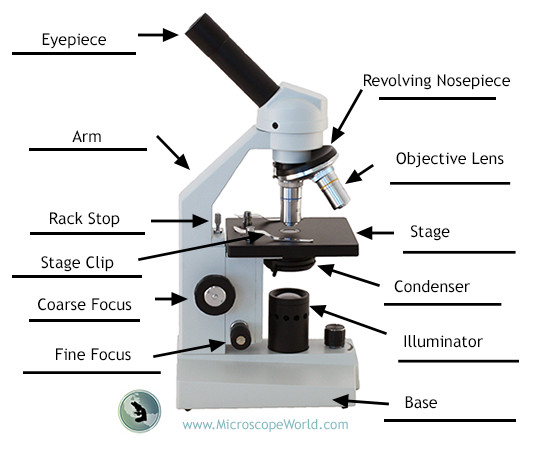
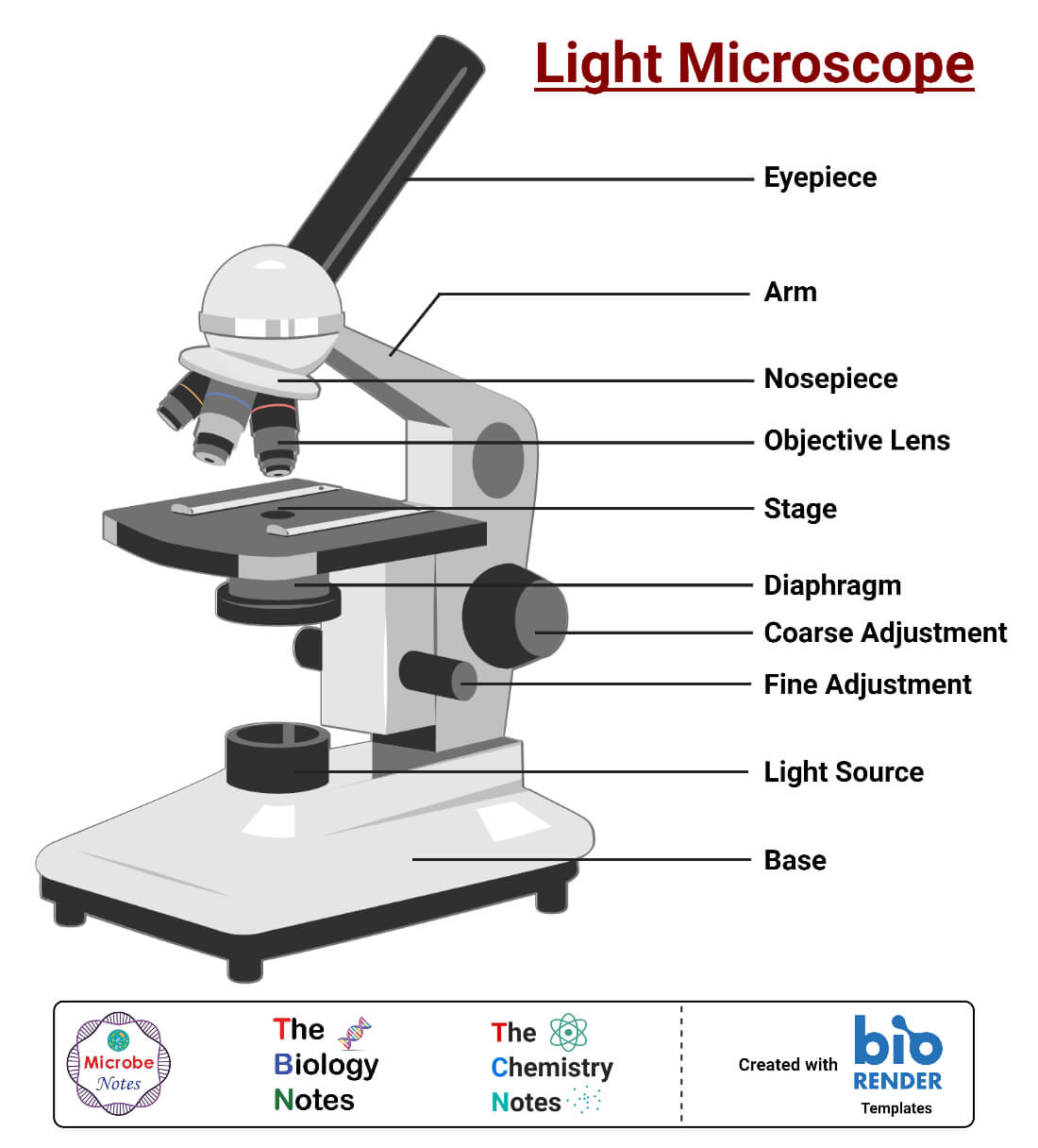





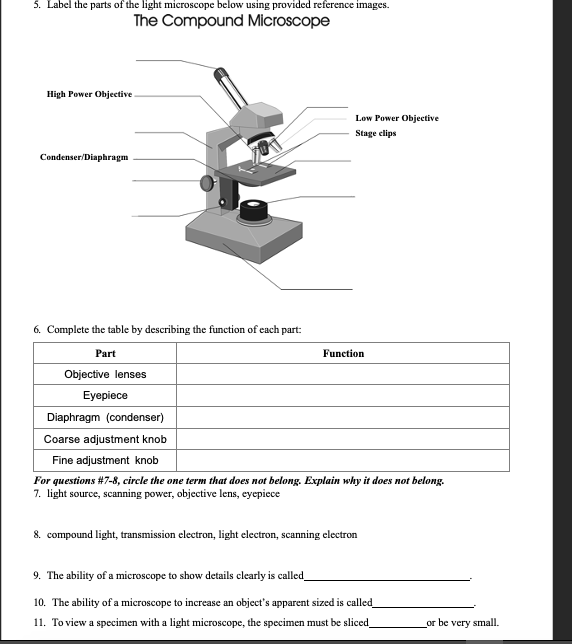



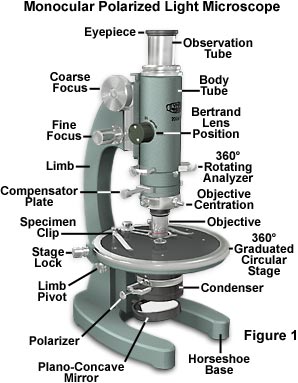
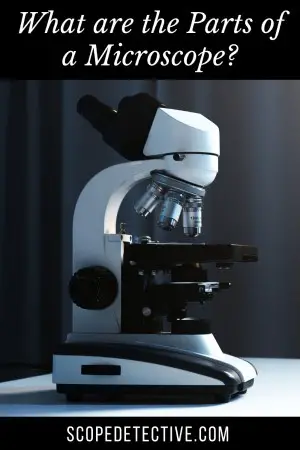
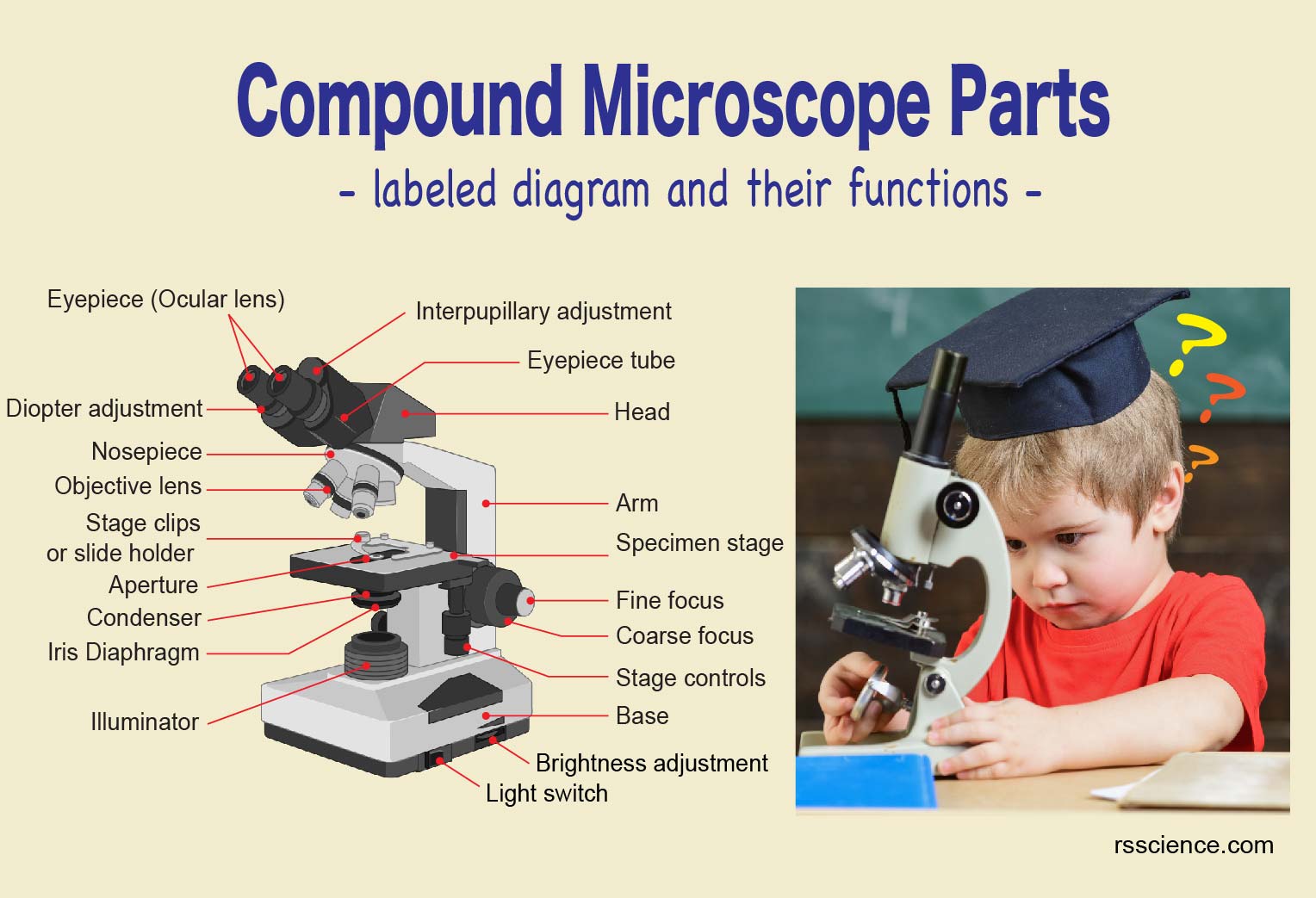

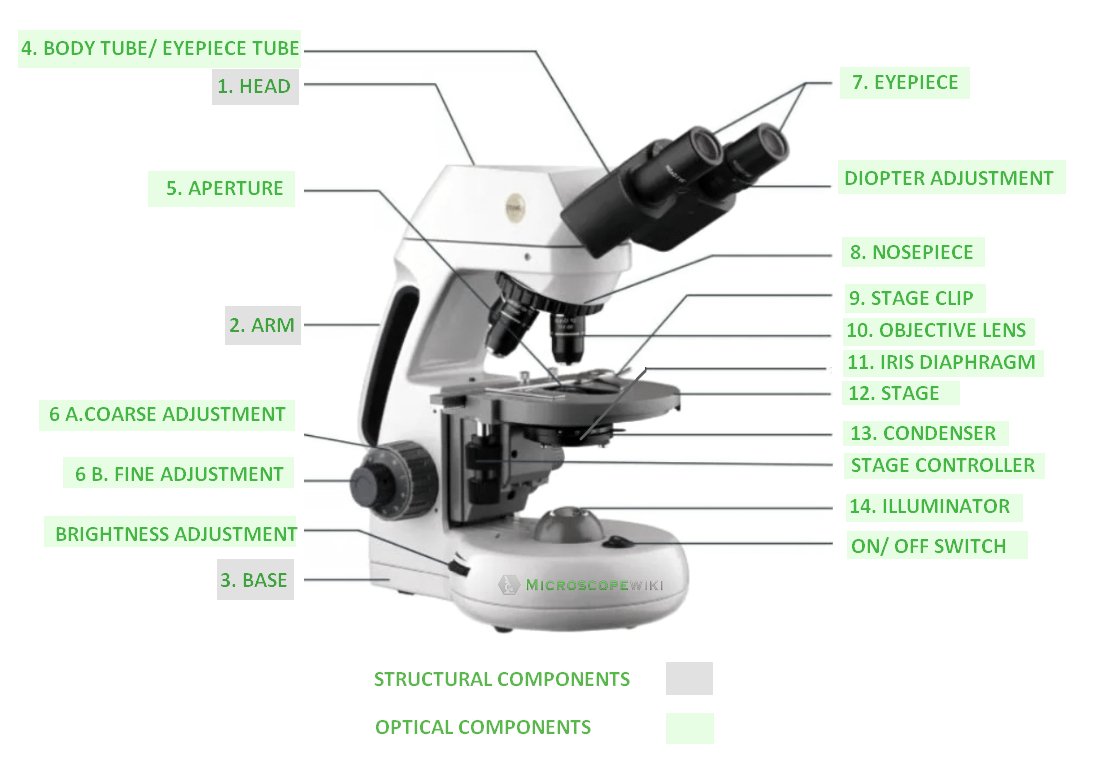
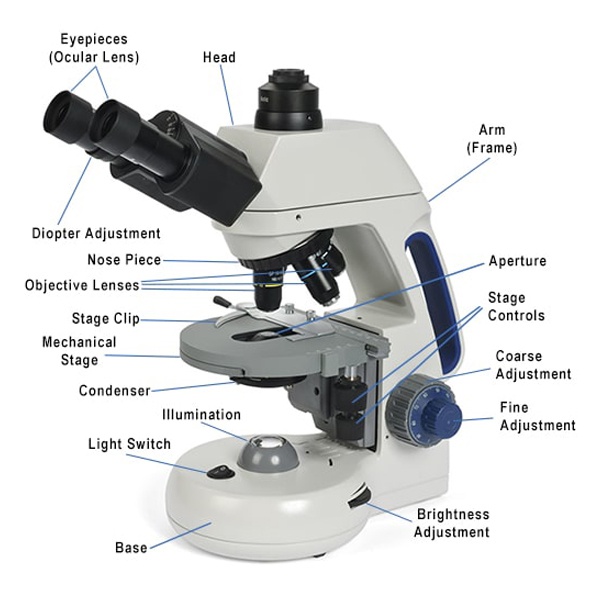

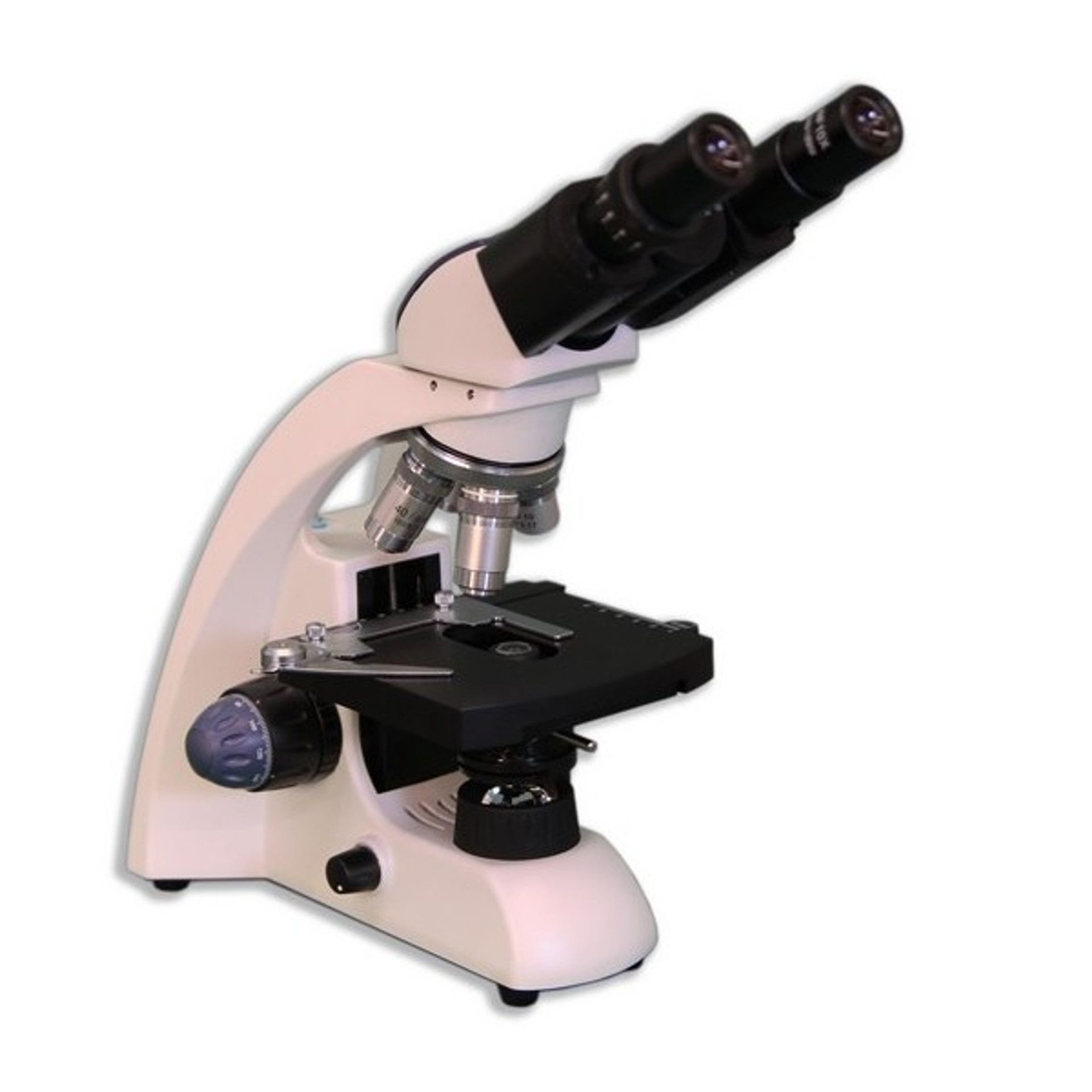


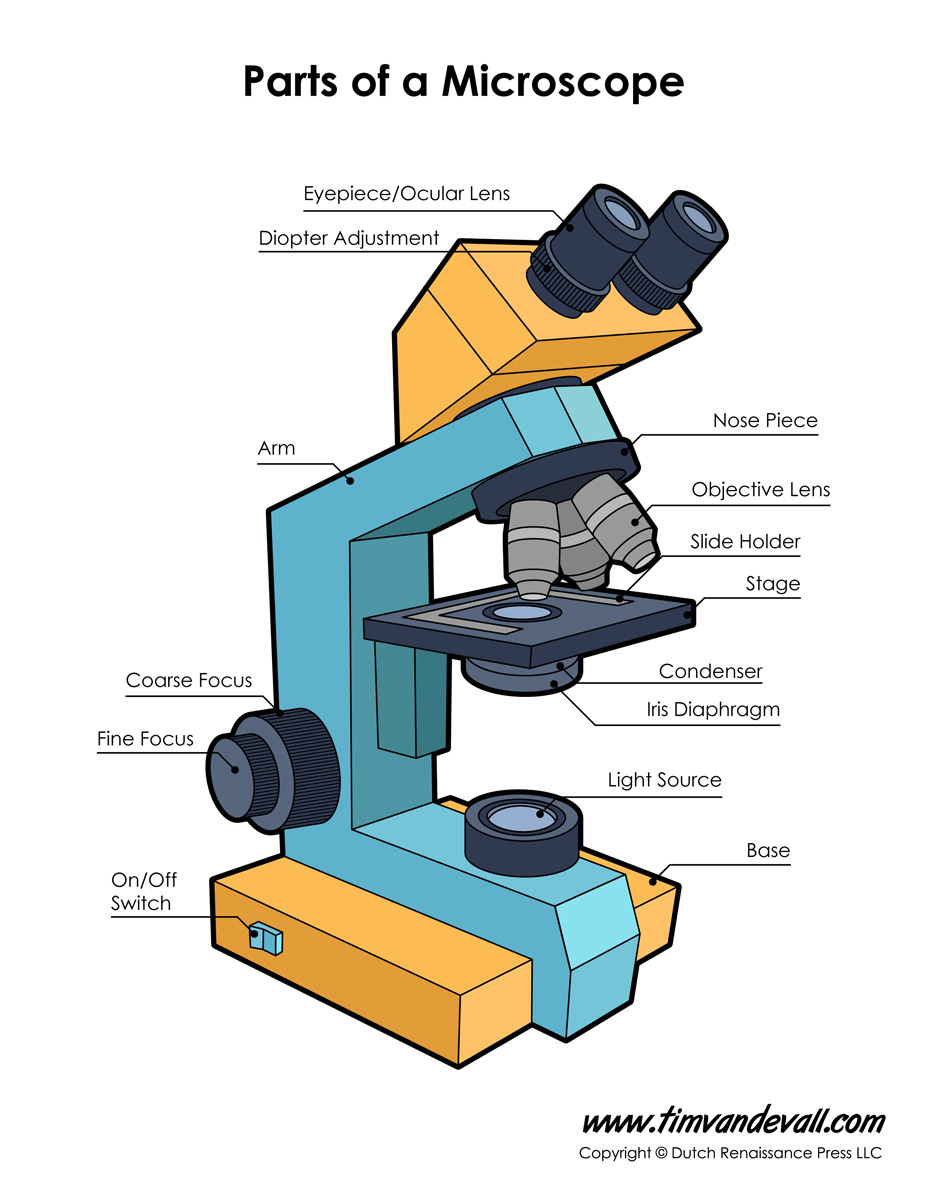
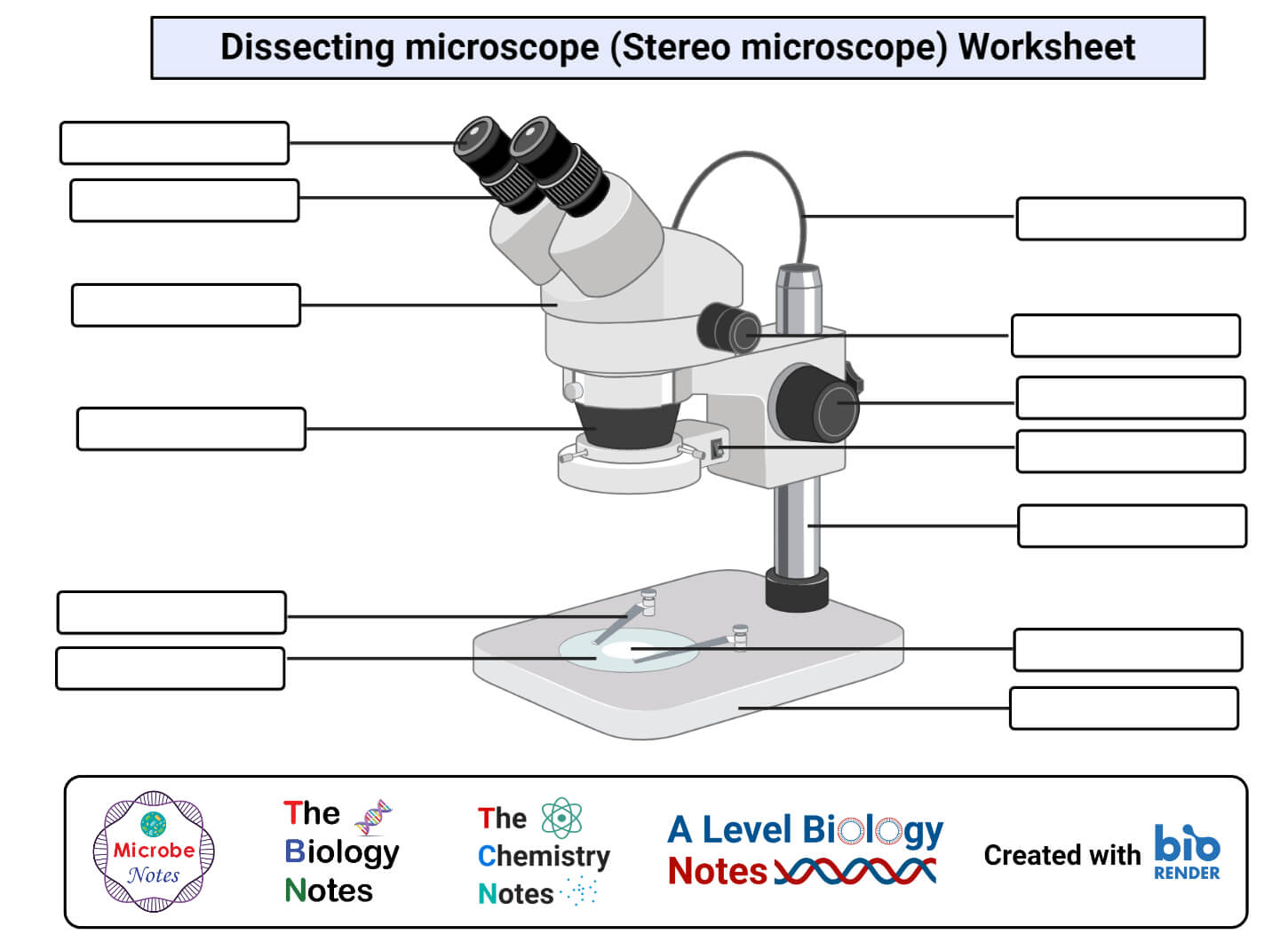
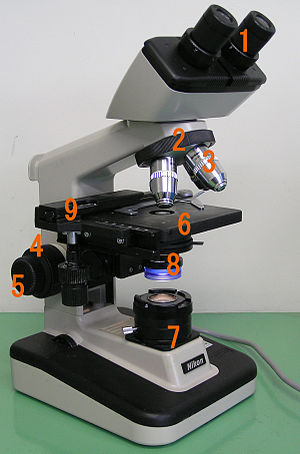
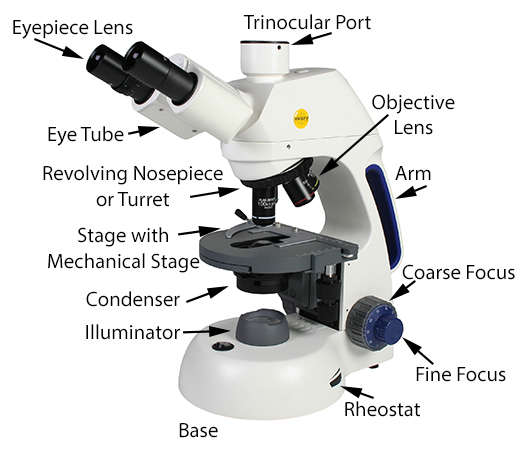
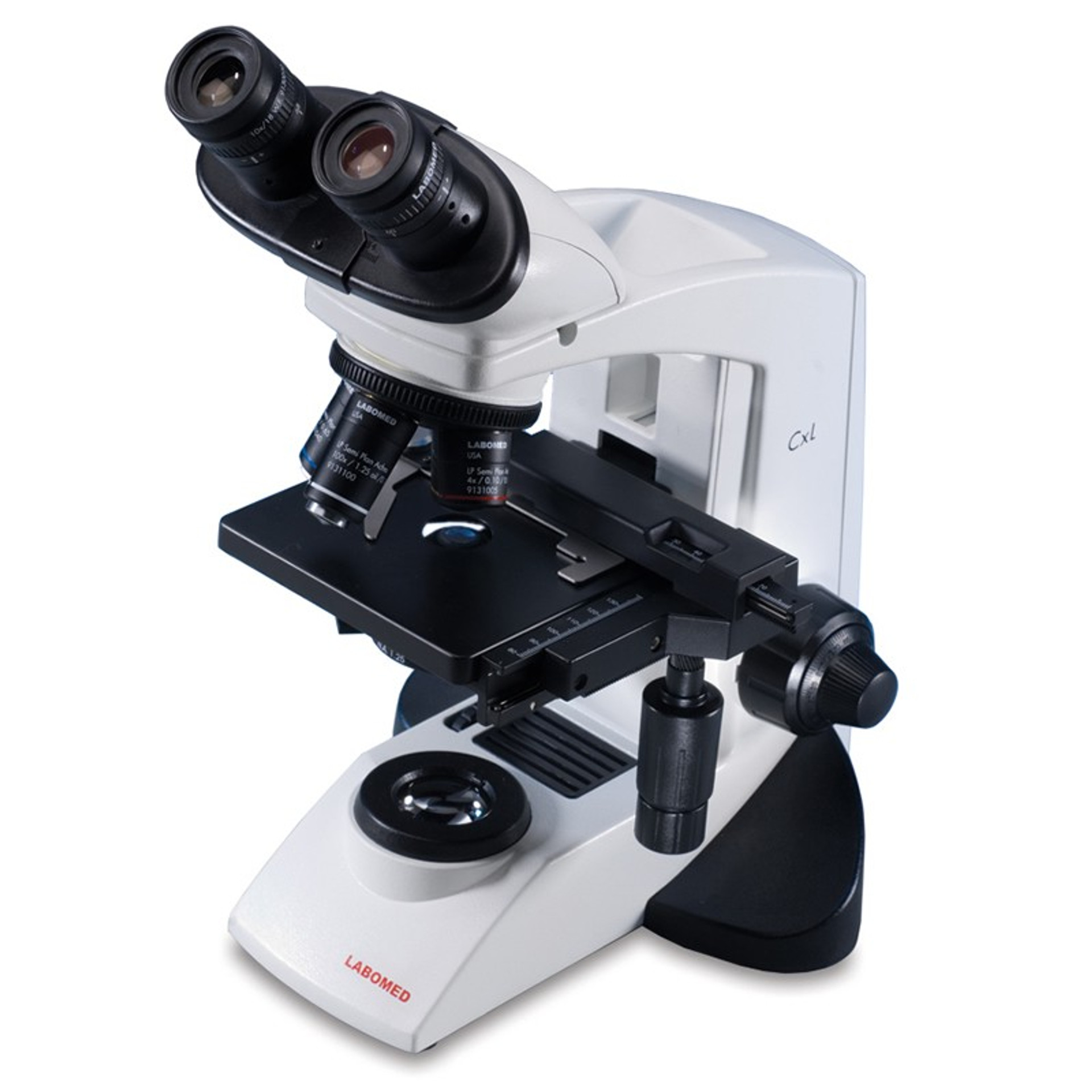
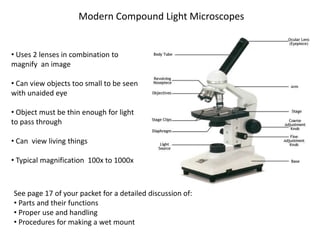
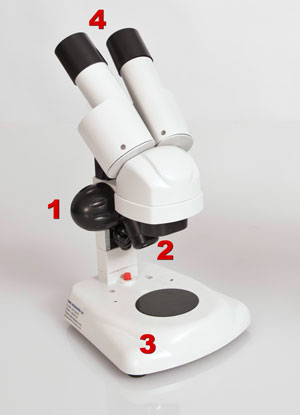
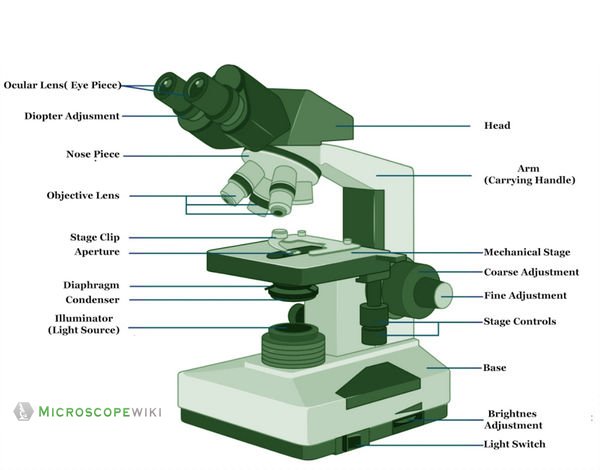



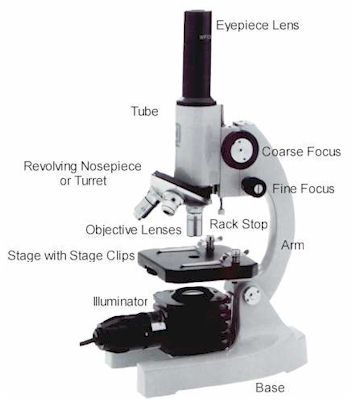

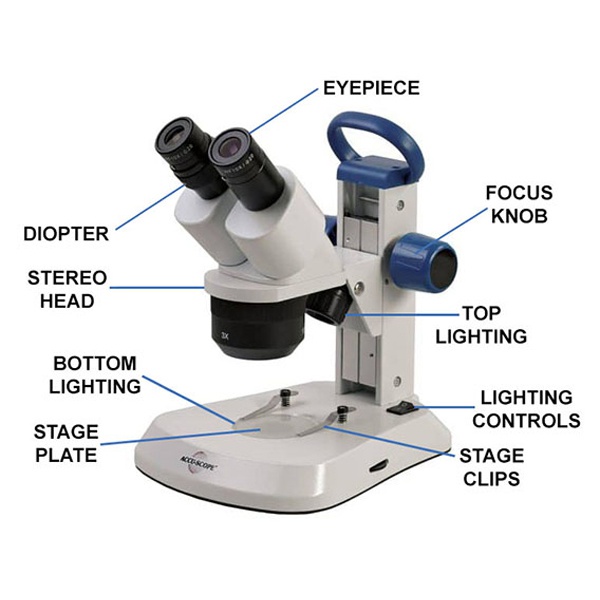
Post a Comment for "40 typical compound light microscope labeled"